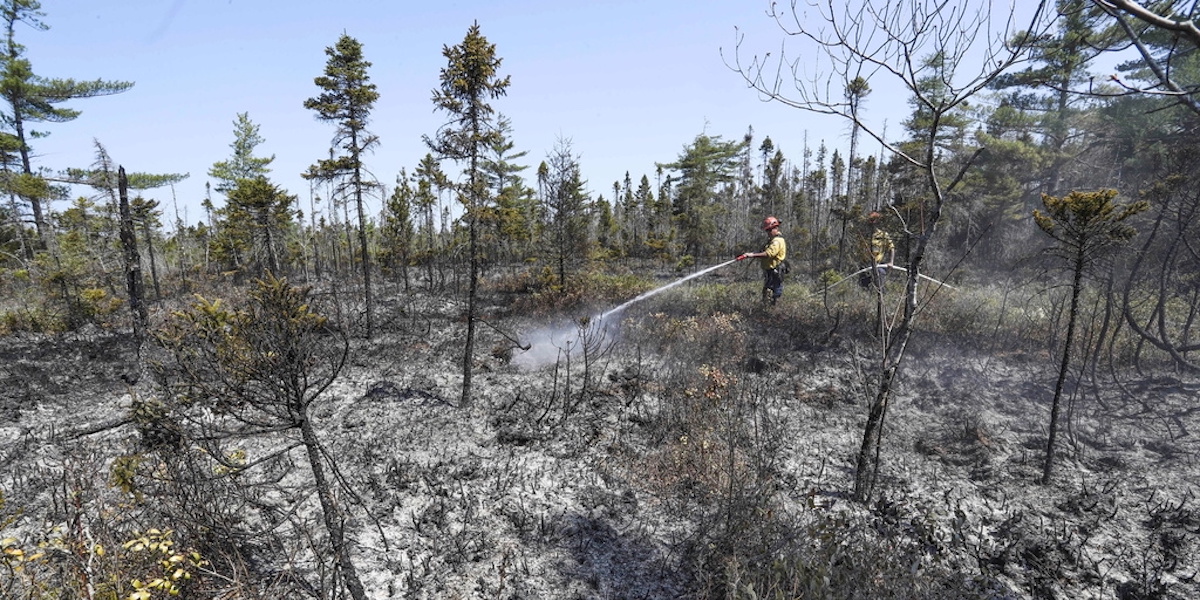It has burned 46,000 square kilometers so far, but according to experts, the worst is expected between July and August.
In recent weeks, thousands of wildfires in Canada have burned millions of square kilometers and forced more than 100,000 people from their homes. Every year in Canada at this time there are fires, even very serious ones, but, according to experts, there has never been such a serious start to the season. “I’m not a huge proponent of these kinds of claims, but they are unprecedented,” said Michael Flanigan, a professor at Thompson Rivers University.
according to Canadian Interagency Forest Fire Center (CIFFC), there are currently 426 active fires across the country, down from 441 on Wednesday. The number of fires deemed out of control also decreased slightly, from 256 on Wednesday to 230 on Saturday thanks to rain affecting the Quebec region. This year 46 thousand square kilometers burned: according to CIFFC data, it is the second worst year in the last 30 years. In 1994, 71,000 square kilometers burned, but throughout the fire season.
State officials said the fires will continue to be very large and dangerous in the coming months as well. The peak is usually reached in the hottest months, i.e. July and August. Fires broke out in April in British Columbia and Alberta in western Canada. In the following weeks, they also formed in the east, in the provinces of Nova Scotia, Quebec, and Ontario. While those in the West are largely under control, those that have developed in the East continue to expand. Fires in Canada are usually more common in the western provinces, and it is unusual for fires to occur in many different areas at the same time.
Fires take advantage of abnormal weather conditions, favored and increasingly frequent by climate change. The higher temperatures recorded in Canada have caused the snow to melt faster and the vegetation to wither. In the event of lightning strikes or arson, plants burn faster and fires spread quickly. “Scientists have been warning us about these consequences for years,” said Katrina Moser, chair of the Department of Geography and Environment at Western University. “Everyone should work to reduce emissions from fossil fuels. That’s the main thing: these fires are telling us something.

“Reader. Travel maven. Student. Passionate tv junkie. Internet ninja. Twitter advocate. Web nerd. Bacon buff.”




